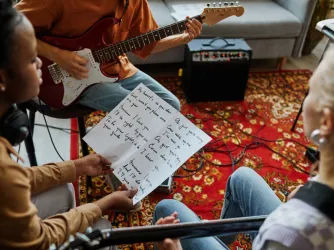Table of Contents
Some U. of Rochester Students Just Don’t Get How Free Speech Works

Last week, I told you about the kerfuffle happening at the University of Rochester, where a professor, Steven Landsburg, has come under fire for hypothetical situations involving rape that he presented in a personal blog post. I praised university administrators for resisting the all-too-common urge to censor or punish the professor's controversial expression, particularly since it has received such negative attention from the public.
However, it seems the drama isn't over. According to The Huffington Post, more than 30 students protested outside Professor Landsburg's class on Monday. While FIRE certainly recognizes the students' right to protest ideas that they don't agree with and even to demand that Landsburg be sanctioned, we are concerned by the students' demands. From The Huffington Post:
"All we're asking is the university take disciplinary action of some form," Daniel Nelson, a UR graduate student who launched the petition, told YNN. "We're even thinking a written warning, something official to send the message to the university community that the university won't tolerate justifications of rape of any kind."
Let's set aside for the moment that the university has already released a statement disassociating itself from the content of Landsburg's personal blog. (This was unnecessary; many professors have personal blogs, and it's unreasonable to assume they speak for their institutions when posting them.) Let's also put aside the fact that Landsburg himself apologized for hurting or offending anyone.
Instead, let's focus on the fact that asking an institution to sanction someone for saying something that you don't agree with is one of the basest forms of censorship and a truly disheartening example of unlearning liberty.
These Rochester students just don't seem to get it. Sanctioning Landsburg, in addition to being wrong, would have a host of unintended consequences across the campus. Not the least of these would be that speech of all kinds would be limited—including the right that these advocates have to voice their disagreement with Professor Landburg. If all it takes to censure someone is that he or she has said something others deem offensive, how long would it be before all but the blandest speech is prone to punishment? Not very long at all. And for how long will people be willing to speak their minds about controversial matters? For not too much longer.
For a good example of how students should be responding to this case, we only have to look a few states south to The College of William & Mary in Virginia—a "green light" school, I might add. In an op-ed for The Flat Hat, Beatrice Loayza expresses exactly the right point with regard to the notion of firing Landsburg:
It is within anyone's rights to express disgust with Landsburg's opinions. At the same time, it is equally within Landsburg's rights to exercise free speech, regardless of how backward and reprehensible the content may be. The issue at hand is not a matter of determining the correctness of speech, but of ensuring that individuals can say what they want.
Thankfully, administrators at Rochester seem to agree more with Loayza than with the censorship-happy subset of their own students. The merit of the University of Rochester's decision to not censure Landsburg—a decision that I hope it will stick to, despite student backlash—is that Rochester students and professors will maintain the ability to question the supposedly unquestionable and say what they think is right. And that goes for both Landsburg and for those students who object so strenuously to his blog entry.
As we say often here at FIRE, the best way to fight speech you think is bad is with more speech. When universities respect freedom of speech, people can do just that.
Recent Articles
Get the latest free speech news and analysis from FIRE.

LAWSUIT: FIRE challenges unconstitutional provisions Rubio uses in crusade to deport legal immigrants over protected speech


Fiction is not a felony
